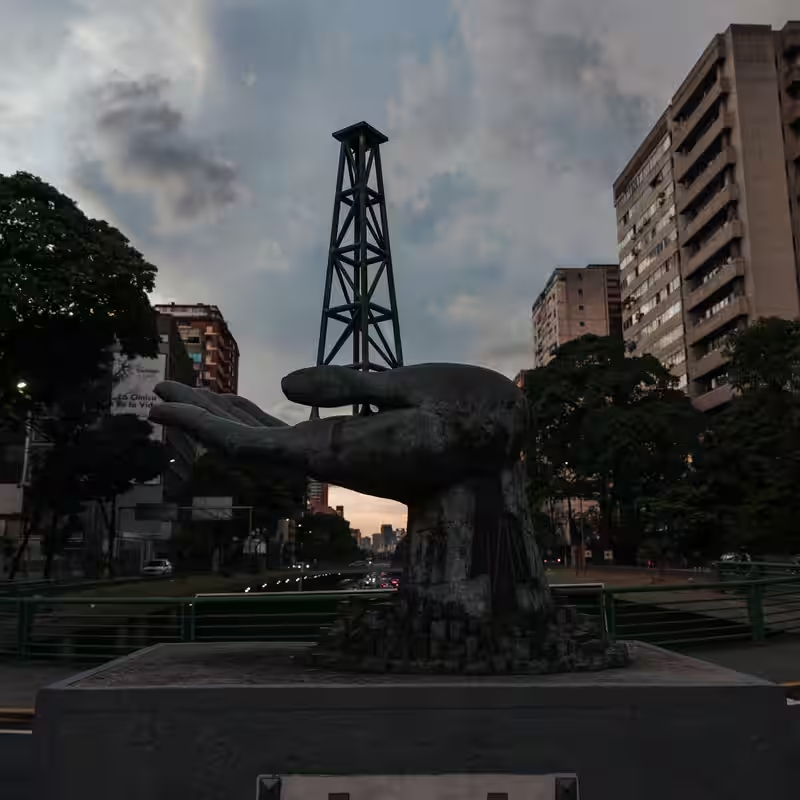Table of Contents
- A Desperate Offer to Avoid War
- What Maduro Proposed: Oil, Gold, and Geopolitical Flip
- Why the U.S. Rejected the Deal
- Venezuela’s Resource Wealth: Numbers That Shock
- Geopolitical Stakes: Russia, China, and Iran Lose Out
- What Comes Next for Venezuela?
- Sources
A Desperate Offer to Avoid War
In a stunning behind-the-scenes maneuver, Venezuelan President Nicolás Maduro reportedly offered the United States sweeping control over his country’s vast oil and mineral reserves in a last-ditch effort to avoid military escalation and secure relief from crippling sanctions.
According to sources close to the negotiations, the proposal—pitched directly to Trump administration officials—was far more than a simple trade deal. It was a geopolitical reset button, designed to realign Venezuela away from U.S. rivals like Russia, China, and Iran and place its natural wealth squarely in American hands.
What Maduro Proposed: Oil, Gold, and Geopolitical Flip
The offer, discussed over several months, included:
- Full access for U.S. companies to all existing and future oil projects
- Preferential contracts for American firms in Venezuela’s gold and rare earth mining sectors
- A complete reversal of oil export flows—from China back to the U.S.
- Termination or renegotiation of energy and mining deals with Russian, Chinese, and Iranian entities
For a country sitting on the world’s largest proven oil reserves—estimated at over 300 billion barrels—this was no small concession. Maduro’s team reportedly framed the deal as a win-win: economic revival for Venezuela, strategic dominance for the U.S.
Why the U.S. Rejected the Deal
Despite the lucrative terms, the Trump administration ultimately walked away. Officials had long labeled Maduro’s government a “narco-terror cartel” and were reportedly skeptical of his motives.
At the same time, the U.S. was escalating military pressure—amassing warships in the Caribbean and conducting strikes on vessels allegedly smuggling drugs from Venezuela. To many analysts, this signaled that regime change, not resource access, was the real endgame.
“They weren’t just negotiating oil—they were negotiating survival,” said one former State Department official, speaking on condition of anonymity. “But Washington wasn’t buying it.”
Venezuela’s Resource Wealth: Numbers That Shock
| Resource | Global Rank | Estimated Value/Reserves |
|---|---|---|
| Proven Oil Reserves | #1 | 304 billion barrels (U.S. EIA) |
| Gold Reserves | Top 10 in Latin America | $8–10 billion in untapped deposits |
| Coltan (critical for electronics) | Among world’s largest | Strategic mineral for tech & defense |
Yet decades of mismanagement, corruption, and sanctions have left Venezuela’s oil output at a fraction of its potential—down from 3.5 million barrels per day in the 1990s to under 700,000 today.
Geopolitical Stakes: Russia, China, and Iran Lose Out
Had the deal gone through, it would have upended global energy alliances. China currently receives a significant portion of Venezuela’s oil in exchange for loans and infrastructure support. Russia has invested in joint ventures and military cooperation. Iran has supplied refined fuel and technical aid.
Maduro’s offer would have severed those ties overnight—effectively handing the U.S. a strategic victory in its broader campaign to isolate adversarial powers in Latin America.
What Comes Next for Venezuela?
With diplomacy cut off and tensions rising, Venezuela now faces an uncertain future. The failed oil-for-peace proposal may have been its best shot at de-escalation.
Analysts warn that without economic relief or political compromise, Venezuela could descend further into humanitarian crisis—or become the flashpoint for a wider regional conflict.
“Maduro tried to trade oil for survival,” said Dr. Elena Márquez, a Latin America policy expert at Georgetown University. “But in Washington’s eyes, some offers are too late—and too tainted—to accept.”




